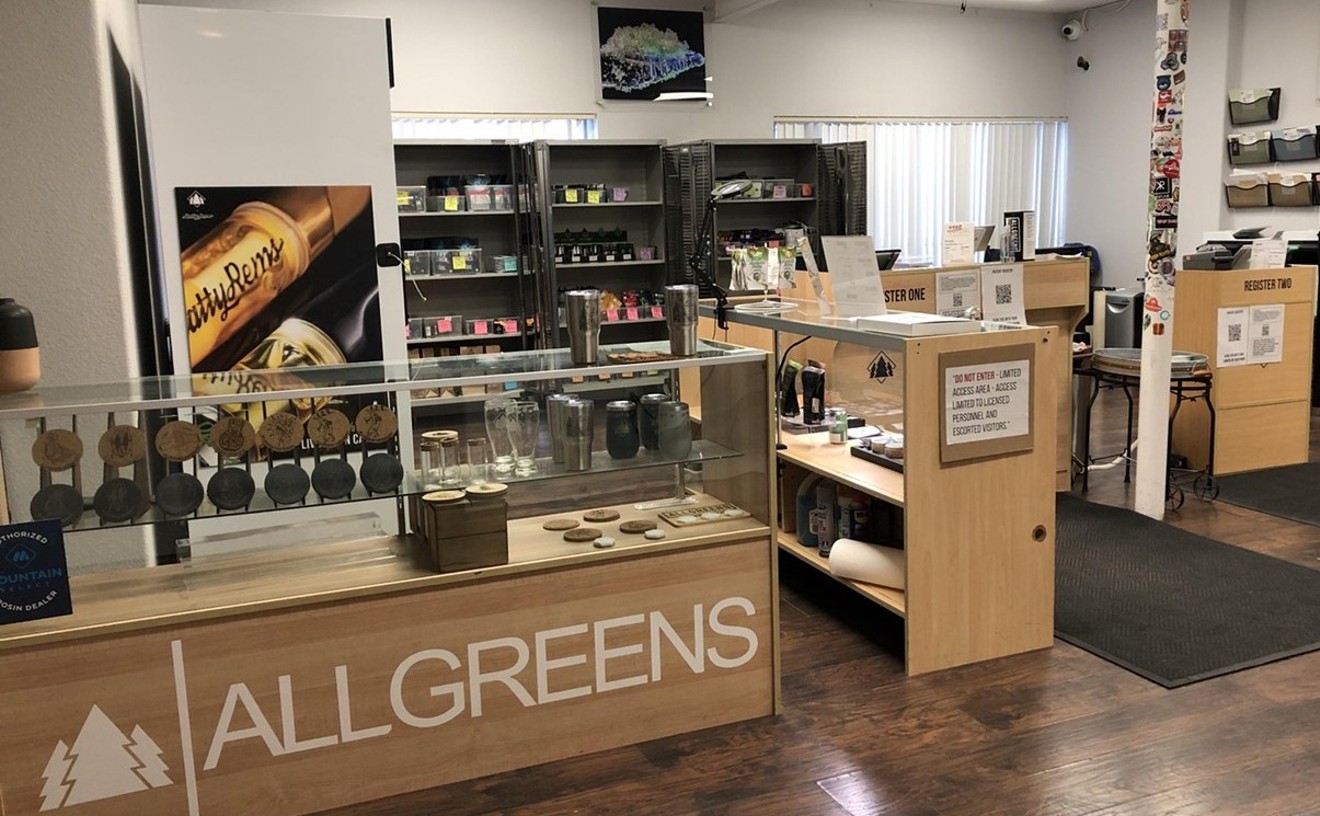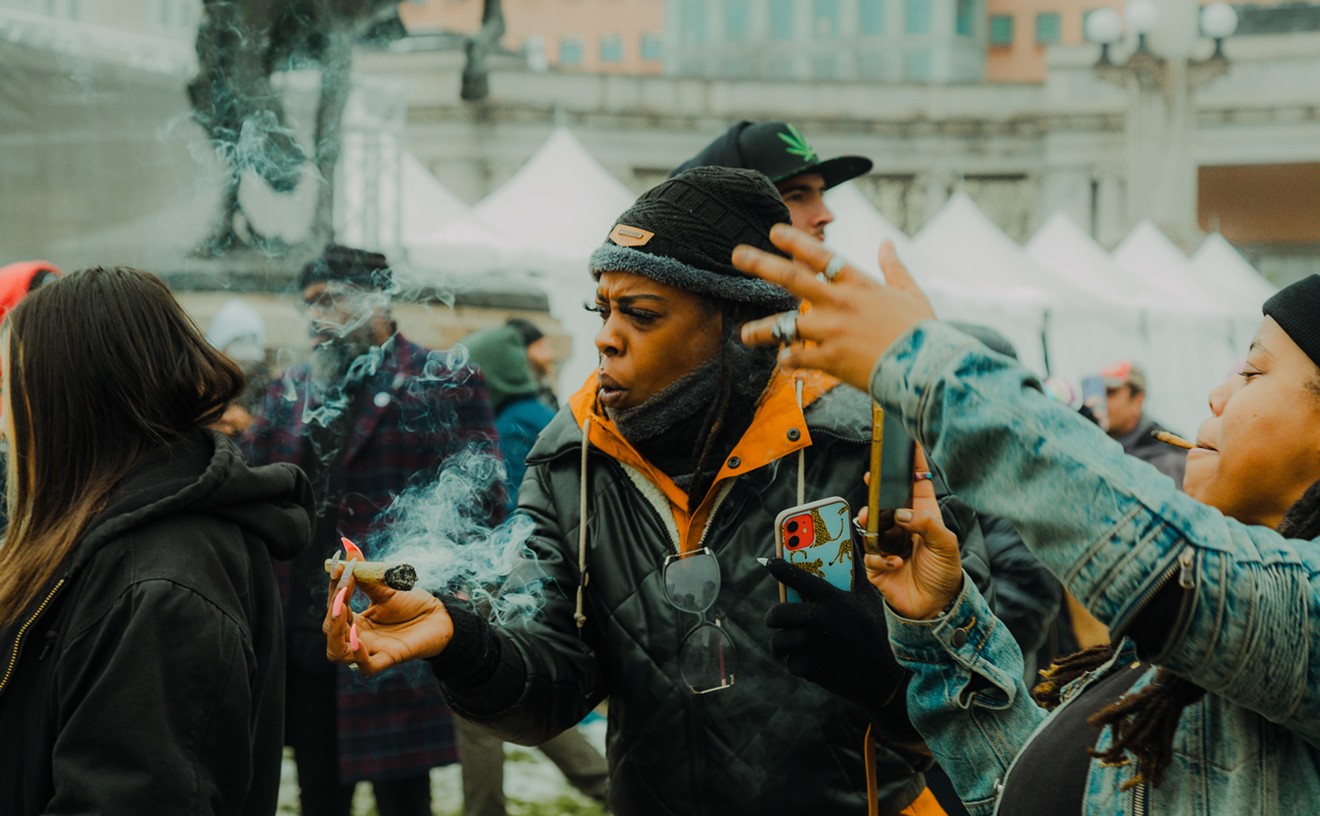Denver City Councilwoman Kendra Black has been heading an evaluation of the city's social cannabis consumption licensing program created by Initiative 300 for nearly a year now, and her work is far from over.
Black was tasked with making recommendations to her fellow councilmembers on how to improve the much-criticized licensing program that's only issued two business licenses for social pot use since it was launched over fifteen months ago. Her task force, comprising city officials, business owners and pot-industry members, completed its list of recommendations in October, but at the time, she wasn't confident that her colleagues would be on board with many of them.
A lot can change in a few weeks, though. Last month, Black's first go-round of presenting her recommendations was cut short by a tight meeting schedule and heavy public testimony. The second try, on Monday, December 3, didn't end with any formal decisions, either — but it did suggest that a resolution is within reach.
In two straw polls, most councilmembers at the meeting said they favored extending or eliminating the social consumption program's sunset review in 2020, and a smaller (but noticeable) majority agreed that the program's location restrictions should be addressed, though there wasn't a consensus as to how that should be done.
Approved by Denver voters in the November 2016 election, I-300 was designed to allow existing businesses the opportunity to apply for private cannabis consumption areas. However, only one social consumption business has opened out of a total of three applications — and none of the three were from already existing businesses. Proponents of I-300 blame changes made to the ordinance during the city's implementation, including a provision that added a 1,000-foot buffer between any social use location and daycare centers, drug treatment centers and city-owned parks, pools and recreation centers.
"That [sunset review] makes it difficult for building out and getting a space," Black said during the meeting. "The idea when they started this was to put them where people socialize." While her recommendation to either eliminate I-300's pilot-program status or extend it from 2020 to 2022 was well received by colleagues, her suggestions for changing location restrictions were met with alternative suggestions.
The task force's current recommendations include two options: removing daycare and drug-treatment facilities and city-owned recreation areas from the location restrictions (but still keeping a 1,000-foot buffer from schools), or keeping the restrictions, but allowing a social use business to open if it receives a letter of approval from any restricted entity within 1,000 feet.
Liquor establishments, such as bars and restaurants, are subject to a 500-foot buffer, Black pointed out, noting that I-300 proponents would support the same distance for social pot use. Under the current 1,000-foot requirement, most of the locations where a social pot spot could operate are industrial and lower-income neighborhoods already saturated with cannabis cultivations and dispensaries.
While her colleagues are warming up to the idea of changing the location restrictions, many had differing opinions about the approach. Several members opposed the option of making exceptions for businesses receiving letters of approval, fearing that a financial incentive might be involved.
Councilwoman Robin Kniech suggested that applicants falling within the buffer zone file a zoning appeal with the Denver Board of Adjustment or another neutral party. The Denver Department of Excise and Licenses, which accepts and denies social use applicants, currently would make the ultimate decision on an appeal as well as the initial license application.
"It's a little hard to see the body that makes the rules then [overseeing] the appeal. I think that needs to be a neutral party," Kniech said. "It seems to me that we already have a solution for this."
Councilman Rafael Espinoza suggested simply making allowances for landmark structures, while Denver City Council President Jolon Clark seemed ready to burn it all down.
Advocating to "start from scratch," Clark said he believes that Denver voters weren't entirely aware of what they approved in 2016. "I personally hesitate anytime we reference, 'Well, this is what the voters approved,'" he added. "What the voters approved is a big picture."
Any I-300 applicants also face state laws and regulations, which currently ban serving alcohol at any establishment that allows pot consumption, and also prohibits indoor smoking in establishments with more than three employees. A bill that would have allowed dispensaries to apply for tasting rooms passed through the Colorado General Assembly in 2018 but was vetoed by Governor John Hickenlooper. Governor-elect Jared Polis has said he would have signed the bill, which is expected to be reintroduced in 2019 by Representative Jonathan Singer.
If the bill passes with the same language as was proposed last year, it would allow localities to make additional provisions or changes, including any proposed to keep I-300 relevant.
Black is currently scheduling another council meeting in January, in hopes of finally reaching a resolution.
[
{
"name": "Air - MediumRectangle - Inline Content - Mobile Display Size",
"component": "12017618",
"insertPoint": "2",
"requiredCountToDisplay": "2"
},{
"name": "Editor Picks",
"component": "17242653",
"insertPoint": "4",
"requiredCountToDisplay": "1"
},{
"name": "Inline Links",
"component": "18838239",
"insertPoint": "8th",
"startingPoint": 8,
"requiredCountToDisplay": "7",
"maxInsertions": 25
},{
"name": "Air - MediumRectangle - Combo - Inline Content",
"component": "17261320",
"insertPoint": "8th",
"startingPoint": 8,
"requiredCountToDisplay": "7",
"maxInsertions": 25
},{
"name": "Inline Links",
"component": "18838239",
"insertPoint": "8th",
"startingPoint": 12,
"requiredCountToDisplay": "11",
"maxInsertions": 25
},{
"name": "Air - Leaderboard Tower - Combo - Inline Content",
"component": "17261321",
"insertPoint": "8th",
"startingPoint": 12,
"requiredCountToDisplay": "11",
"maxInsertions": 25
}
]













